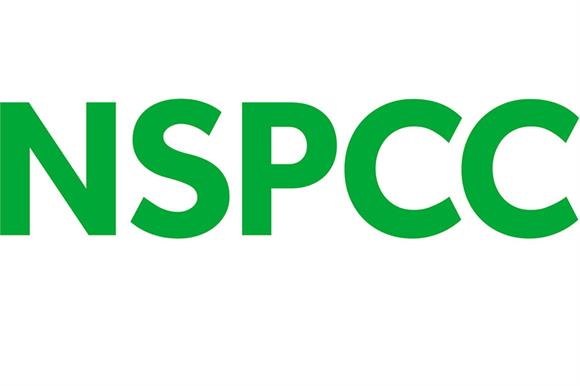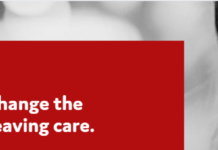NSPCC reveals worrying increase in number of children hospitalised for self-harm
- At least 3,000 children hospitalised for self-harm in the last three years across Wales
- ‘Call for Help’ aims to raise funds for Childline so every child has someone to talk to
New NSPCC research has revealed that at least 1,193 children and young people in Wales were hospitalised for self-harm last year, an increase of almost 350 (41%) in the past three years within those health boards that provided information.
The worrying figures were obtained by the NSPCC after a Freedom of Information Request (FOI) to all those health boards in Wales with Accident and Emergency departments. They highlight how a growing number of hospital beds are being filled by children who have taken violent and drastic steps to alleviate their emotional pain and suffering.
In total 3,086 children were hospitalised for self-harm between 2013/14 and 2015/16 in Betsi Cadwaladr, Hywel Dda, Cwm Taf and Abertawe Bro Morgannwg University Health Boards. Cardiff and Vale UHB and Aneurin Bevan UHB did not respond to the request for information. Powys Health Board does not have A&E services.
In 2013-14, 845 under 18s were treated at A&E departments. The following year 1,048 attended while in 2015-16 the figure was 1,193.
Across England and Wales, nearly 19,000 children and young people were hospitalised for self-harm last year, an increase of almost 2,400 (14%) in the past three years.
The figures reinforce the importance of the charity’s ‘Call for Help’ Christmas campaign, which is raising vital funds for services like Childline so every young person who gets in contact via the phone or online receives the support and advice they may desperately need.
Currently the free and confidential helpline for young people can only deal with three in every four of those that reach out for help. The ‘Call for Help’ campaign invites people to text GIFT to donate £4 on 60155.
Teenagers aged 13 to 17 are most likely to end up hospitalised for acts of self-harm that include cutting their bodies, overdosing on pills or burning themselves; highlighting the crisis many young people are facing as they struggle to cope with the pressures of modern day life.
The new figures are backed up by Childline which delivered 18,471 counselling sessions about self-harm last year – equivalent to 50 a day – making it one of the most common reasons for children and young people to reach out to the NSPCC service. In Wales, volunteers undertook 1,366 counselling sessions last year.
One 14-year-old boy who contacted Childline said:
“Sometimes I get flashbacks from what happened when I was younger and I cope with the horrible memories by cutting myself – it helps me release the pain from within. School helped take my mind off things but now that the holidays are here I’m struggling. My parents always seem to be too busy for me and I don’t want to tell my friends what happened. I feel so miserable and lonely – can you please help?”
And a 14-year-old girl told counsellors:
“Recently I’ve lost some people that were really close to me. When I started to self-harm it seemed to mask the emotional pain I was feeling, even if it only helped for a little while. When I get the urge to cut, I can’t seem to stop it until it’s done; otherwise I get really upset and angry. A couple of times I’ve gone too far and ended up in hospital.”
Self-harm can take lots of physical forms, including cutting, burning, bruising, scratching, poisoning and overdosing.
The NSPCC has published advice for those that suspect a child or young person is – or is considering – self-harming:
- Listen and show empathy and understanding
- Talk it over to try and discover their self-harm triggers
- Build their confidence and show that they can trust you
- Help them find new ways to cope
Des Mannion, Head of NSPCC Cymru / Wales, said: “A frightening number of children and teenagers in Wales are being driven to self-harm as a way of dealing with unresolved feelings, tensions and distress in their lives.
“Knowing hospital beds are full of young people crying out for help should be a real wake up call to all those that care for the wellbeing of the younger generation. It is vital we confront the fact that an increasing number are struggling to deal with the pressures and demands of modern-day life, to such an extent they are inflicting terrible damage upon themselves.
“A key step in this process is ensuring every child and teenager who contacts Childline receives the advice and support they may desperately need, which is why it is so important that people get behind our ‘Call for Help’ campaign.”
Childline President, Dame Esther Rantzen added: “It is deeply disturbing that so many children and young people are ending up in hospital because they are injuring themselves so seriously. Self-harming is at epidemic level among young people, at Childline we hear from them every day.
“It has become one of the most common problems young people bring to us, and I know from our counsellors that these are some of the most painful stories we hear. Often the young people feel too ashamed and fearful to seek help from those around them, until they harm themselves so badly they have to be rushed to hospital.
“So they need to remember that Childline is here for them and that it really makes a difference to talk to our counsellors who care about you and want to support you.”
Children and young people can contact Childline for free, confidential support and advice, 24 hours a day on 0800 1111 or at www.childline.org.uk
Help keep news FREE for our readers
Supporting your local community newspaper/online news outlet is crucial now more than ever. If you believe in independent journalism, then consider making a valuable contribution by making a one-time or monthly donation. We operate in rural areas where providing unbiased news can be challenging. Read More About Supporting The West Wales Chronicle

























